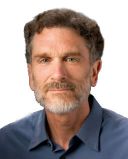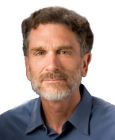
Anxiety
Treating Anxiety Without Using Prescription Medications
Many alternative therapies are safe and effective treatments of anxiety.
Posted February 18, 2017 Reviewed by Jessica Schrader
Anxiety: an overview
Generalized anxiety is a chronic condition characterized by both psychological or physical symptoms such as feelings of tension, excessive worrying, and heightened arousal that significantly interfere with work, going to school, being in a relationship, or functioning in society generally. Symptoms of generalized anxiety often change over time, last for months or longer and are not due to another mental health problem, a medical problem, or substance abuse. Many explanations of chronic generalized anxiety have been proposed and the condition is probably related to how the brain responds to chronic stress at the level of neural circuits or neurotransmitters.
Panic attacks are transient episodes of intense anxiety that may be triggered by an unexpected or frightening situation or object, or occur spontaneously. Panic attacks are typically associated with dizziness, perspiration, hyperventilation or shortness of breath, elevated heart rate or palpitations, feelings of intense dread, fear of dying. There is considerable variation in the duration and severity of symptoms that take place during panic attacks. Many individuals who experience panic attacks suffer from significant social and occupational impairment. Biological, social and psychodynamic theories have been advanced in attempts to explain generalized anxiety and panic attacks.
The majority of individuals who suffer from panic attacks eventually develop phobic avoidance of large open spaces (agoraphobia) or avoidance of specific situations or objects they associate with previous panic attacks. Many chronically anxious individuals experience depressed mood, insomnia, panic attacks, and other mental health problems. Abnormal heart rhythms, disorders of the thyroid, diabetes and several other medical problems sometimes may cause symptoms that mimic generalized anxiety but which typically resolve when the underlying medical problem responds to treatment. As many as one-half of individuals who experience frequent panic attacks become depressed, and 10% eventually attempt suicide.
Limitations of conventional pharmacologic treatments
Established mainstream treatments of anxiety include cognitive-behavioral therapy, supportive psychotherapy, and prescription medications. Double-blind studies have verified the efficacy of sedative-hypnotics (e.g. benzodiazepines) and SSRIs in the short-term treatment of recurring panic attacks and generalized anxiety. Most currently available conventional treatments of anxiety are beneficial but have limited efficacy. Further, individuals who chronically use potent sedative-hypnotics to control intense feelings of generalized anxiety or panic symptoms are at significant risk of drug dependence and withdrawal. This is complicated by the fact that the majority of persons who experience generalized anxiety initially have positive responses to medications but remain symptomatic over the long-term. Finally, many individuals who struggle with chronic anxiety have problems with depressed mood, insomnia, and alcohol or drug abuse.
Non-medication treatments of anxiety
The limited effectiveness of available mainstream treatments of bipolar disorder invites serious consideration of non-medication approaches. Natural supplements used to treat generalized anxiety include the kava, the amino acid l-theanine, and certain Ayurvedic herbals. Numerous research studies show that 5-hydroxy-tryptophan (5-HTP) has beneficial anti-anxiety effects and may also help prevent panic attacks in some cases. In addition to natural supplements biofeedback, yoga and other mind-body approaches, acupuncture, massage, music, relaxation, and micro-current electrical stimulation often reduce symptoms of generalized anxiety. Exercising 20 to 30 minutes daily can significantly lower anxiety levels in individuals who have generalized anxiety.
If you are currently struggling with anxiety and taking a medication that isn’t helping, experiencing adverse effects, or you simply can’t afford to continue taking a medication that is working Anxiety: The Integrative Mental Health Solution provides valuable information about non-medication alternatives that will help you feel and function better such as herbals, vitamins, and other natural supplements, whole-body approaches, meditation and mind-body practices, and energy therapies.
Click here to preview or buy my book, Anxiety: The Integrative Mental Health Solution.

